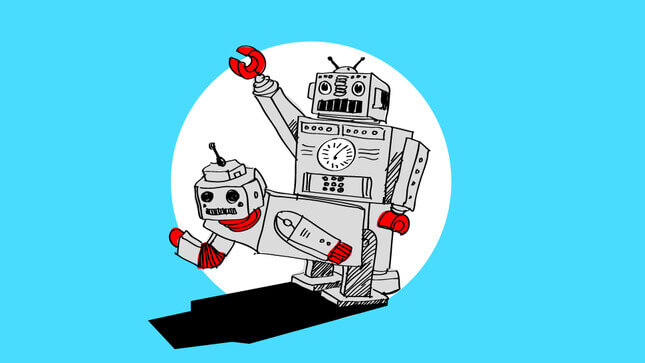Sex Robots and Love-Score Apps: This Is the Future of Dating
Latest

Another
day on the Internet, another excuse to wonder if and when technology is
going to turn the landscape of interpersonal human relationships into
some kind of unrecognizable Garden of Simulated Delights. Another
chance to speculate whether the world of the future will be populated by
people wantonly having sex with robots and other people whispering
smutty things to Siri. A day looms on the horizon, maybe, in which
everyone will exist like rhesus monkeys trapped in a sterile lab of
loneliness and isolation, clinging to our devices and yet feeling no
comfort.
What’s
the alternative, though? Is there some way that technology can enhance
our relationships, making them easier, more exciting and more
straightforward? It definitely seems likely: it’s fairly inarguable
that technology already is changing the way we interact romantically
with one another — and the ways in which we process, capture, cherish
and recover from those interactions — for better and for worse. So,
what does the future hold? Well, according to the trend-spotting shop Sparks & Honey, a lot of things. (One of those things is robot sex.)
In collaboration with the Museum of Sex, Sparks & Honey has released a report
on the future of sex and relationships. It examines “three key
currents of change that are shaping modern relationship” — technology,
increasing public acceptance of nontraditional relationships and sexual
practices, and the mainstreaming of kink — and extrapolates the Future
of Sex and Love from there. Some of the prognostics are fairly
predictable — the report, for instance, predicts that flirting apps and
relationship rating apps will proliferate and become commonplace: “Sex
and relationships are one of the fertile new frontiers for tracking and
measurement,” reads the report. “Big [bedroom] data from sensors and
apps, such as SpreadSheets, provide insights into your ‘performance’ and why relationships work or fail.”
I
was, at first, kind of skeptical — I don’t know of anyone who seriously
applies data analytics to their sex or dating life. The consensus of
my peers and colleagues is that Lulu,
the foremost dating ranking app, is creepy, and I’ve only ever heard of
people using SpreadSheets on assignment. I myself once downloaded a dating app
with the intent of writing about it, but it was so boring and useless
that I had absolutely nothing to say. (Side note: while using the app, I
was supposed to be rewarded with a grilled cheese because I had showed
affection well. I was never given a grilled cheese.) There’s a reason
that the age-old adage “It’s not you, it’s me” exists: because breakups
are hard, and people aren’t good at telling one another what, exactly,
went wrong. Expressing you dissatisfaction openly can be daunting, and I
have a hard time believing that some kind of relationship or sex rating
app would change that. When I told Sparks & Honey CEO Terry Young
about my misgivings, he responded that quantifying experiences is
already becoming ubiquitous — we rate our drivers, our masseuses, our
dining experiences, etc. — and there’s no reason data analytics wouldn’t
take the leap to the realm of romance.
-

-

-

-

-

-

-

-

-

-

-

-

-

-

-

-

-

-

-

-

-

-

-

-

-

-

-

-

-

-

-

-

-

-

-

-

-

-

-

-








































